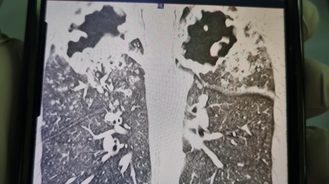Scientists have revealed the two exact ages in your life that will show bursts of rapid aging.
Aging is a gradual, continuous process of natural change that sparks a mid-life or quarter-life crisis in many people.
While some dramatically believe that this starts when you hit 25 or 30, it has been discovered by scientists that the process spikes when you are a lot older.

The authors of 'Nonlinear dynamics of multi-omics profiles during human aging' gathered a sample size of 108 participants, aged between 25 and 75.
For the study, the scientists examined the molecules in the participants' blood and stool samples, as well as by using mouth and nose swabs every few months.
They also assessed 135,000 different molecules - like protein and metabolites - and microbes - which are viruses, bacteria, and fungi.
It was then shockingly found that most of the molecules and microbes didn’t shift slowly - as it was expected to.

The study then eventually detected two significant surges of age-related changes around the ages of 44 and 60.
“We’re not just changing gradually over time. There are some really dramatic changes,” said Prof Michael Snyder, a geneticist and director of the Center for Genomics and Personalized Medicine at Stanford University and senior author of the study, told The Guardian.
“It turns out the mid-40s is a time of dramatic change, as is the early 60s – and that’s true no matter what class of molecules you look at," he added.

Scientists believed that the mid-40s revelation was because of perimenopausal changes in women, however, the data demonstrated that similar shifts were happening in men.
“This suggests that while menopause or perimenopause may contribute to the changes observed in women in their mid-40s, there are likely other, more significant factors influencing these changes in both men and women,” Dr. Xiaotao Shen, a former postdoctoral scholar at Stanford medical school and first author of the study who is now based at Nanyang Technological University Singapore, said, per the outlet.
The results help the authors to understand why age-related illnesses like cardiovascular and neurodegenerative diseases generally pop up at particular ages. It could also target interventions, such as exercising more during periods of more rapid muscle loss.
“I’m a big believer that we should try to adjust our lifestyles while we’re still healthy,” Snyder said.
What do you guys think about this discovery?










